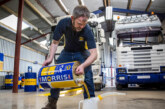What’s the future of hydrogen-powered vehicles?
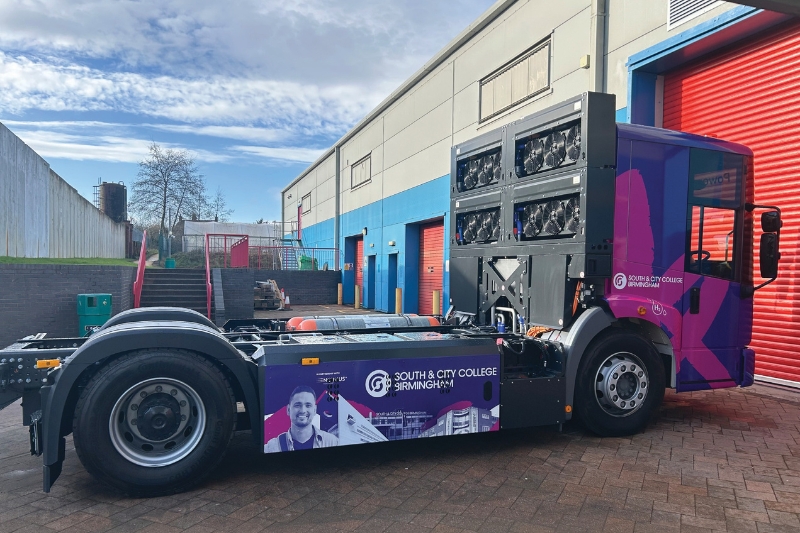
CVW travelled up to South & City College in Birmingham to have a look around its new hydrogen training facility.
South & City College Birmingham (SCCB) has taken a major step toward the future of sustainable automotive technology with the unveiling of a cutting-edge hydrogen vehicle training facility. This initiative, made possible by a substantial £1.5 million capital investment from The Office for Students, aims to equip the next generation of automotive professionals with the skills and knowledge needed to work on hydrogen-powered vehicles.
We recently visited the college to speak with Anshu Williams, assistant director of employer engagements and placements, and Jordan Steele, head of school for automotive technologies, to gain insight into the process of establishing this facility and its future implications.
From vision to reality
The concept for the facility was first announced in December 2022 after SCCB successfully secured funding through a highly competitive bidding process. The transformation from an idea into a fully functional training space was made possible through a pioneering partnership with Enginius, a division of vehicle manufacturer FAUN Zoeller, specialising in hydrogenpowered municipal vehicles.
The new 450m² ATEX-compliant workshop has been designed to meet industry standards, incorporating advanced ventilation and safety systems. It features vehicle lifts and an EV training area, ensuring a comprehensive learning environment for students. SCCB’s goal is to upskill the existing workforce to Levels 3 and 4 while also providing real-world training opportunities for higher education students pursuing foundation degrees. Additionally, lower-level students will benefit from new pathways leading to advanced training in hydrogen technology.
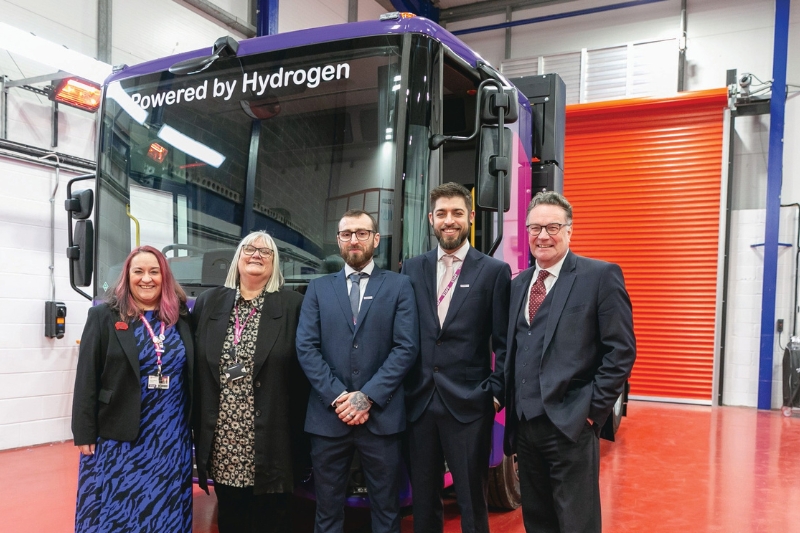
Overcoming challenges
Setting up a hydrogen vehicle training facility was not without its challenges. The process took approximately two years, with the workshop’s transformation adding an unexpected 12-month delay. According to Anshu, the existing workshop was far from ready for hydrogen training, necessitating extensive modifications.
“We had to redesign the space completely. This wasn’t just a case of setting up hydrogen training in an empty workshop – we had to rethink everything from scratch,” Anshu explained.
The power of further education and industry partnerships
One of the key drivers behind SCCB’s success has been its ability to adapt and develop tailored programs that meet industry demands. Anshu emphasised the importance of collaboration with businesses to ensure training aligns with sector needs. A prime example is the college’s partnership with Enginius on its hydrogen training facility.
“Partnerships are actually really vital to everything we do. Because if businesses can’t engage with us, we’ll end up in a perpetual cycle of no one getting what they want because nobody’s talking to anybody. So this partnership is a really good example of this.” Anshu shared.
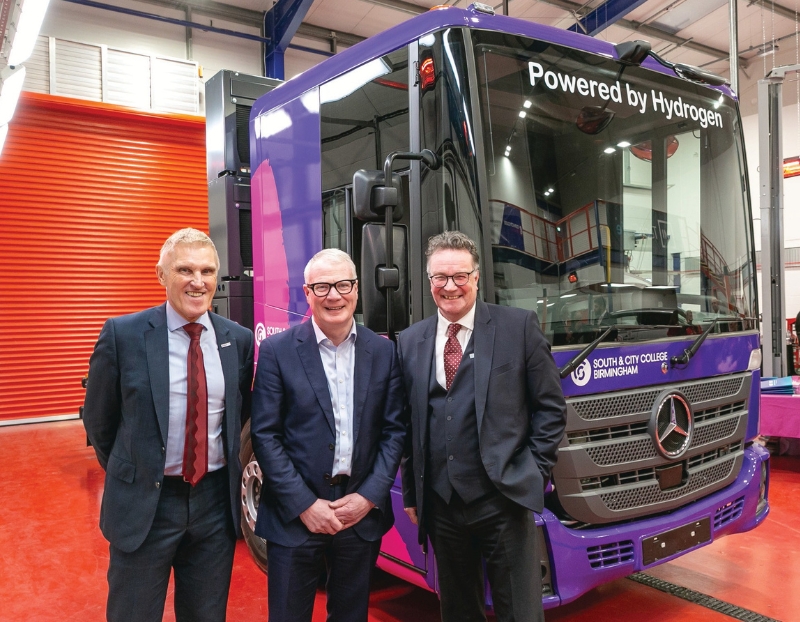
In further education, securing funding is often a crucial step in launching new projects. The collaboration between SCCB and Enginius involved working closely with awarding bodies such as the Institute of the Motor Industry to ensure the curriculum met industry standards. Jordan elaborated on the technical challenges:
“For us, the biggest hurdle is ensuring our staff are trained to the highest level so they can, in turn, train the students. Hydrogen technology is still new, and there isn’t much hands-on experience available yet. We’ve had to undergo our own training, source the right equipment, and build the curriculum from the ground up.”
Safety and technical considerations
One of the major concerns surrounding hydrogen vehicle training is safety. The facility’s hydrogen sensors are extremely sensitive, capable of detecting hydrogen levels at just 10 per cent of 1 per cent, well below the explosive threshold of 4 per cent.
Jordan pointed out that finding the right balance in safety measures has been a learning process. “We’re continuously refining our safety protocols, ensuring that even in the rare event of a leak, we remain well within safe operating limits.”
Another factor limiting the widespread adoption of hydrogen training in workshops is cost. Hydrogen infrastructure is still in its early stages, and while SCCB is ahead of the curve, many businesses are hesitant to invest until demand increases. However, Jordan sees this as an opportunity.
“We’re using this time to figure everything out before the industry catches up. By getting ahead now, we’re opening ourselves up to new opportunities, including training for industries outside of automotive, such as construction, where hydrogen generators are becoming more common,” he noted.
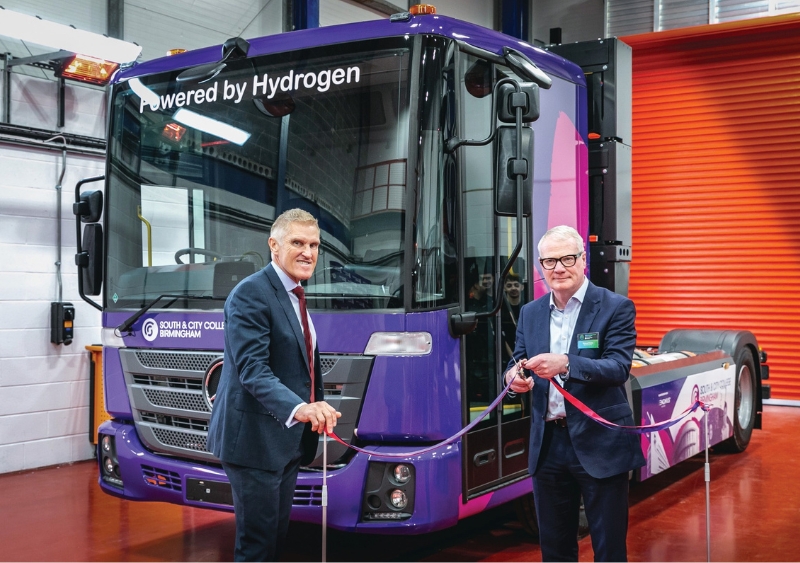
Hydrogen’s role in the future
While hydrogen technology is still emerging, its potential has been recognised for decades. Jordan pointed to historical research on hydrogen-powered aircraft dating back to the 1930s as evidence of its longevity. Today, with a new hydrogen mega-plant under construction in the UK, industry perception is beginning to shift.
“I think people are starting to see hydrogen as a viable alternative. Once the infrastructure is in place and production costs decrease, it will become much more mainstream,” Jordan predicted.
Anshu echoed this sentiment, highlighting the importance of preparing now for the future. “If we don’t explore hydrogen now, we could find ourselves in a difficult position down the line. Battery technology isn’t perfect, and having alternative solutions like hydrogen will be critical.”
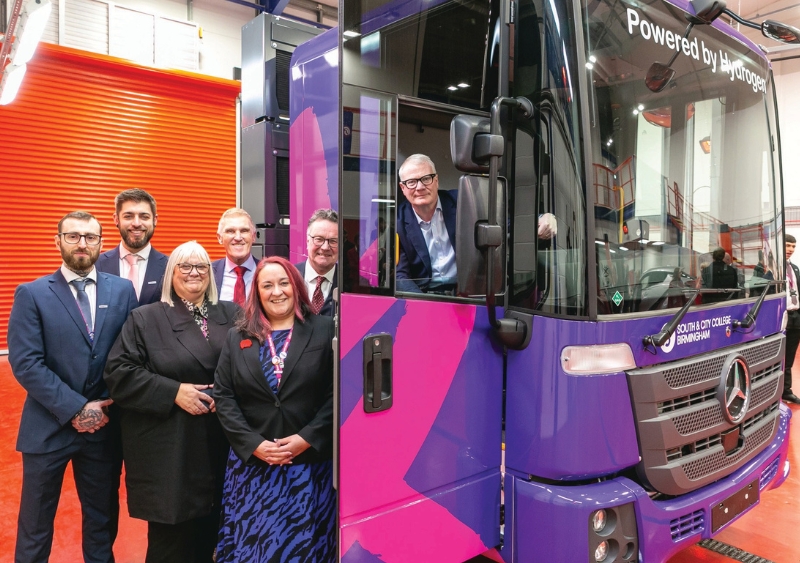
Long-term training
SCCB is committed to not only preparing students for the present but also for longterm careers in the automotive sector. Jordan, a former apprentice himself, stressed the value of apprenticeships in developing skilled professionals.
“Apprenticeships are brilliant. I wouldn’t be here today without mine. If an employer truly invests in an apprentice, both the learner and the business benefit. It’s about building long-term expertise,” he said.
As hydrogen technology continues to gain traction, SCCB’s initiative positions the college as a leader in automotive education. By collaborating with industry partners, investing in state-of-the-art facilities, and focusing on safety and technical excellence, SCCB is helping shape the future of automotive training.
As Jordan aptly put it, “We want to make sure our students leave here the most qualified they can be – not just for next week, but for decades to come.”
With hydrogen vehicles set to play an increasingly important role in sustainable transport, SCCB’s forward-thinking approach ensures its graduates are ready to meet the challenges of tomorrow, today.




